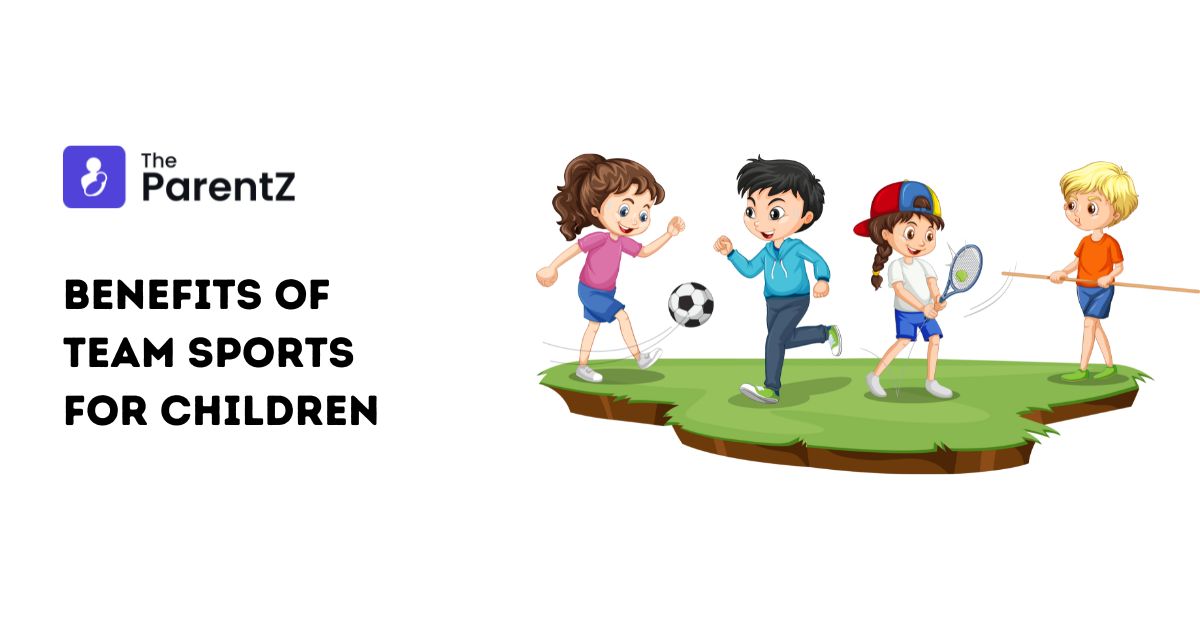These days, as technology and digital life take away time for physical activity and social interaction, team sports provide a viable alternative for the majority of us. They serve as a tool to not only forge children’s physical capabilities but also to nurture social and emotional competence.
Attributing to Conditioning the Health of the Body and the Brain
Sports teams are great actors in health promotion among the child population. Frequent participation in sports and playing games not only enhances cardiovascular health, increases muscular strength and endurance, and improves balance, coordination, and agility. These benefits are not restricted to the playing area itself. Frequent exercise not only positively impacts your sleep schedules, as well as the amount of energy you have, but also your immune system’s fighting strength. This can enable a person to be healthier as well as learn how to act when they do encounter certain illnesses.
Various sports teams are also increasingly becoming useful tools in meeting the challenge of the childhood obesity epidemic, which is alarming in most countries. The use of both regular exercise and the games’ environments, where sportsmanship and the gathering of healthy habits are emphasized, will give the kids a chance to stay fit and grow their foundation toward an active life.
The Power of Teamwork
It is not just the positive attribute of a team sports event but also the social and emotional benefits that players may experience after the event. In a team sport, particularly, the main element is teamwork. Through group work, children are able to do specific tasks and develop skills such as mutual understanding. Successful completion of the task relies on everyone doing what gets them the desired result. This is the development of communication skills and cooperation, as well as the ability to work together in a team and collaborate effectively, and so on.
Also, team sports are more than just an entertainment factor; they give children the opportunity to grow their confidence level and esteem. Being on a winning team, which is a factor in being successful, is a source of pride, and therefore, one feels a sense of belonging.
Developing social butterflies
Team sports allow children to build up effective social skills from the environment they play in naturally. Children obtain several skills through these processes, such as friendship formation, strengthening of social bonds, and enhancement of communication skills. In this context, social contact is primarily priceless for the shy and timid girl, who learns to overcome her fears and builds confidence in social milieus.
Learning to bounce back
Team sports are not just about winning; they are also about learning the reality of competition and how to face defeat. A successful entrepreneur is someone who can bounce back from failures and overcome adversities, thus creating a resilient attitude in children. Through this, they realize that they can rise from the dust of defeats, rage against frustrations, and carry on defiantly, never giving up. Among others, this lifelong skill sure tells the players not to give in to the adversities they face, whether this is on the field or outside of residential areas.
More than just physical activity
The advantages that team sports comprise are not only physical and social ones but also other factors. There is evidence that engagement in team sports may have an upward effect on the cognitive functioning of youngsters. The tactical features of sports necessitate powerful concentration and the application of intelligent thinking. Different skills obtained can be applied to their studies, and this might result in good personal growth.
Participation in team sports can also be one of the ways in which lessons of time management tend to be hammered into the participants. Practice balancing sports and games with academics and personal life needs children to learn how to elevate and manage their time with caution. This ability goes beyond the fields and is applicable to both their academic and later professional careers.
The Spirit of Sportsmanship
Without a doubt, teaching sportsmanship may be one of the most valuable lessons life-long learning the team sports teaches. Kids are made aware of the positive points in how it is firmly constructed in them with winning and losing with ease. The athletes come to revere their opponents, the referees, and all the rules that apply to the tournament. This leads to the formation of a frame of mind for a fair play and also teaches the most invaluable life objectives, such as humility, respect, and being cordial both on the winning and losing sides.
The Final Whistle: The lifetime of benefits cannot be underestimated
Team sports have a diverse number of benefits for children, playing a very essential role in their health that includes sports, social, and emotional sides. Team sports is a time-flexible mechanism that helps to develop not only good physical condition but also such useful characteristics as teamwork and socialness, as well as determination and resilience, which will benefit a child all their life. Given the popularity of collective sports, do it for your boy or girl. See them grow as they become complete and productive boys and girls who strive both on and off the field.
To recap, sport teams do not aim at victory only; sport teams are an immensely important part of your children’s development. Besides promoting team sports, which give this gift of physical fitness, stronger social skills, valuable life skills, and a base for a healthy and remarkable life, you are also instilling in their minds good morals for a healthy and purposeful life. Hence, do not tell them to channel this into salutary values, but have them choose the right path before it’s too late.








Be the first one to comment on this story.